Everything you need to know about construction nails
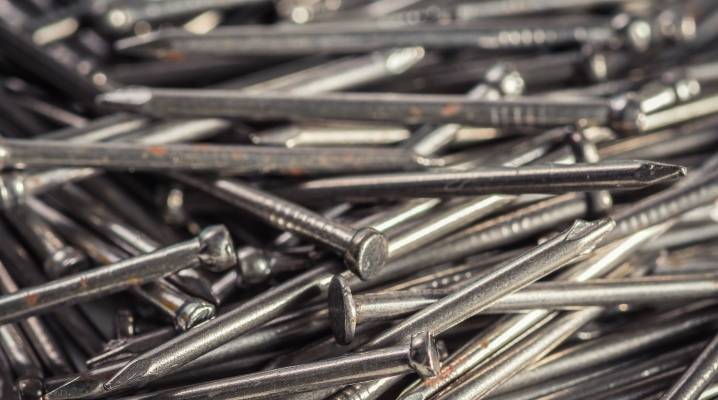
Repair work without the use of nails is almost impossible to carry out. It is easy to use such a hardware, therefore, this task is within the power of every craftsman. The construction market sells a huge number of varieties of fasteners, in which construction nails play an important role.
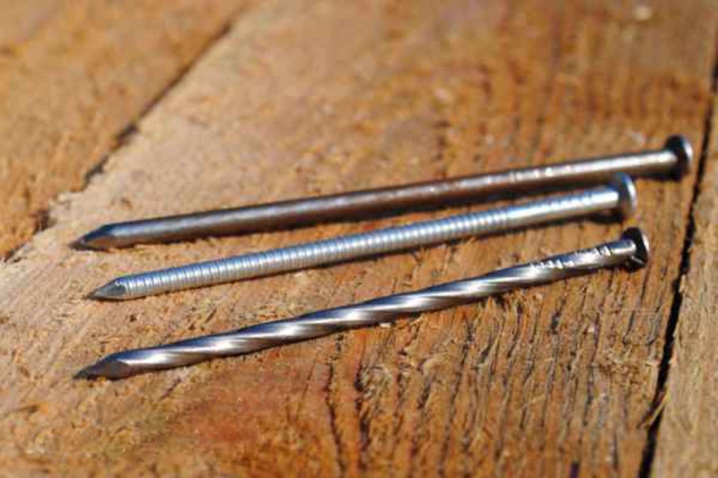
Peculiarities
No matter how improved construction technologies, nails remain one of the most demanded elements for fastening. Construction nails are a rod with a pointed tip, at the end of which a head is located. The shape of the rod and the head can have a different shape and size, which determines the purpose of the hardware.
For construction nails, there is a valid GOST 4028, it regulates the manufacture of these devices. The material for the production of hardware is usually low-carbon steel wire with a round or square cross-section, without heat treatment.
Also, the production of construction nails can be made of copper, steel with or without zinc coating.
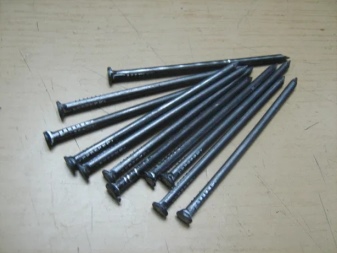
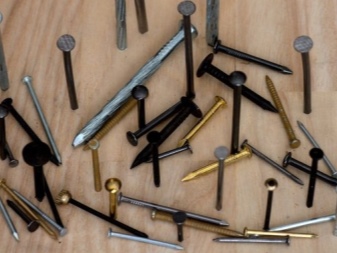
Specifications:
- the core of the product can have a diameter of 1, 2 - 6 mm;
- the length of the nail is 20-200 mm;
- indicator of one-sided rod deflection 0, 1 - 0, 7 mm.
The sale of hardware for construction is usually carried out in batches, each of which is in a corrugated cardboard box weighing from 10 to 25 kilograms. The package contains only one standard size of the nail, each unit of which must be marked.
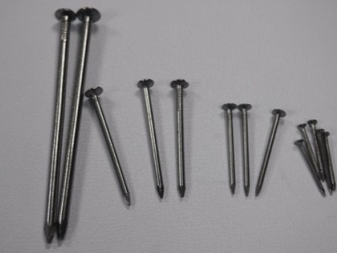
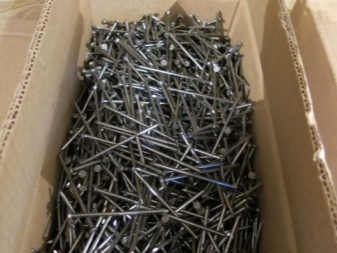
Applications
Construction hardware is used not only for the construction of a frame house, but also for many other procedures. They are often used to connect various wooden and plastic elements. Some types of this device have a decorative function, since after fastening it does not stand out from the tree. Also, the use of a construction nail is relevant during the fastening of parts that are in the open air.
The slate nail is used for direct installation of the roof, fastening the slate sheet to the wooden frame.
Experts advise buying galvanized products to secure the roof.
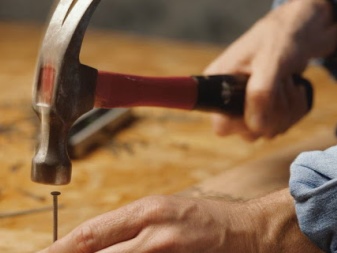
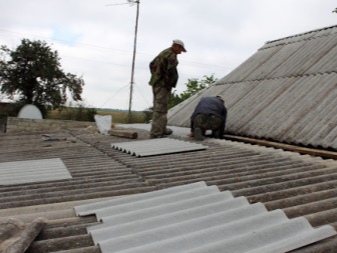
They prevent the formation of rust and thus keep the roof intact for a long time. The furniture construction nail has found its application in the furniture industry. It is distinguished from its congeners by its thin diameter section and small size.
With their help, thin furniture parts are attached to each other, for example, the back of the cabinet. Decorative hardware is a thin and short product with a convex head. Such a device can have both copper and brass surfaces. According to experts, nails should be used strictly in accordance with their intended purpose. Otherwise, the fasteners will not last long.
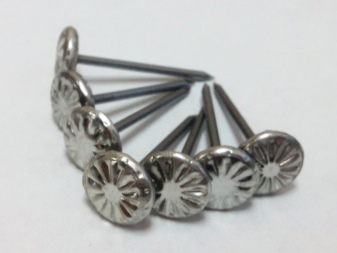
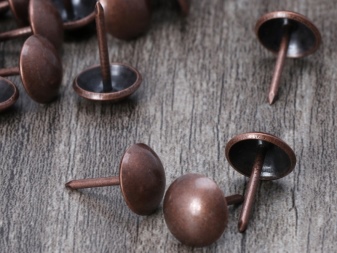
Species overview
Even before starting the construction of the structure, it is worth deciding on the number and type of construction nails, without which it is impossible to do in this matter. Currently on the market you can find a wide variety of hardware of this type. Often found black, flat-headed, tapered, and others.
Construction nails are of the following types.
- Slate. As mentioned earlier, these hardware are used during the installation of slate and its fasteners to a wooden surface. The nail has a round cross-section of the rod, as well as a flat rounded head with a diameter of 1.8 centimeters.This device is characterized by a diameter of 5 millimeters and a length of up to 10 centimeters.
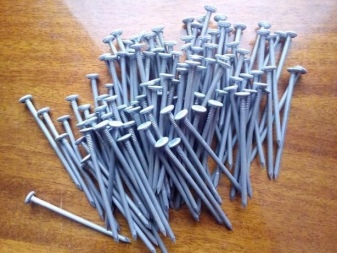

- Roofing nails - these are hardware with a diameter of 3.5 millimeters and a length of no more than 4 centimeters. With the help of these devices, roofing iron is laid, and also mounted on a substrate.
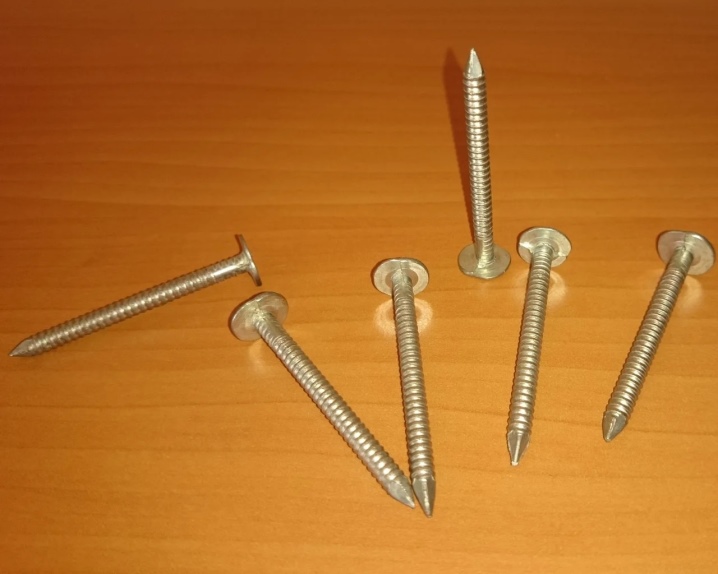
- Clubs. These nails are characterized by the presence of solid or bridged grooves. The hardware is perfectly adhered to the wooden covering. Often they are used for fastening any roll coating.

- Carved nails are equipped with a screw shaft, they are characterized by a high strength and bend poorly. The master should know that such a nail is capable of splitting the board, so it can only be used on durable material, and the work should be done carefully.
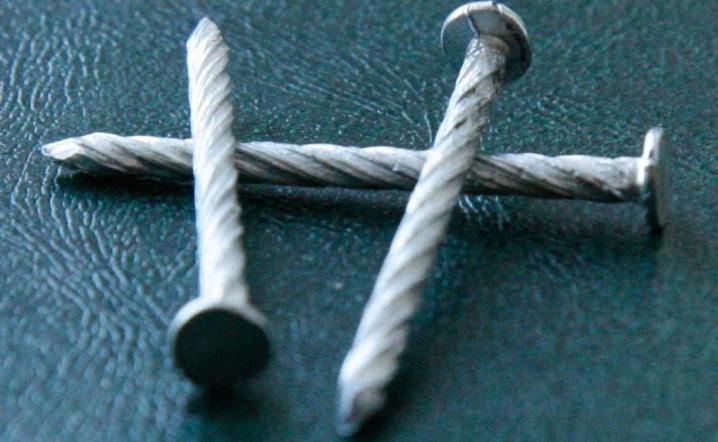
- Round. Roofing hardware has a round hat and a large diameter. The cross-section of the rod can be from 2 to 2.5 millimeters, and the length does not exceed 40 centimeters. This hardware is especially relevant when working with roofing felt and roofing felt.
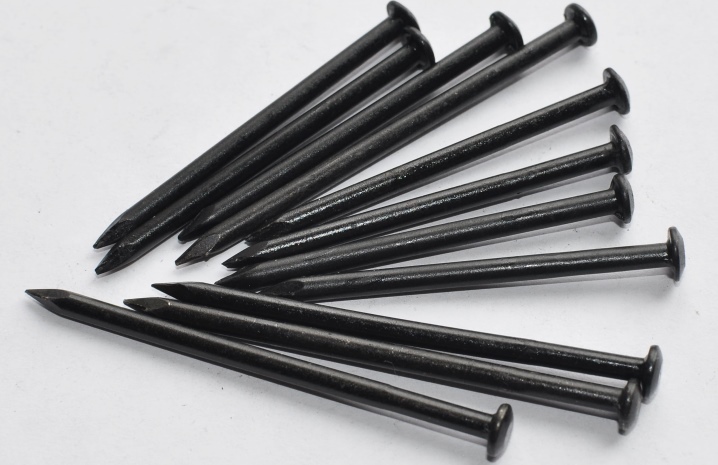
- Finishing. Products of this type are small in size, they have a semicircular head. Finishing nails have found their application in cladding work on surfaces that are covered with a finishing material.
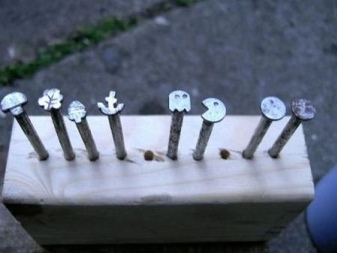
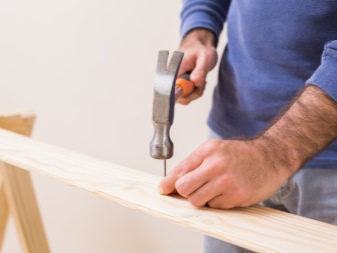
- Wallpaper nails are decorative hardware. They have a shank diameter of up to 2 mm and a length of up to 20 mm. These products have semicircular hats with various reliefs, shapes and textures.

- Tare. Hardware of this type have found their application in the manufacture of containers, such as boxes and pallets. The diameter of the nails does not exceed 3 mm, and their length can be 2.5 - 8 mm. The device is equipped with a flat or conical head.
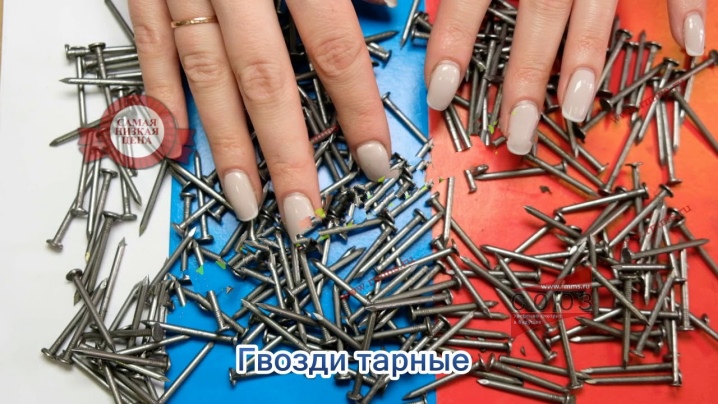
- Ship nails are considered indispensable in the manufacture of barges and ships. This type of hardware is characterized by the presence of a zinc coating, as well as a square or round type of cross-section.
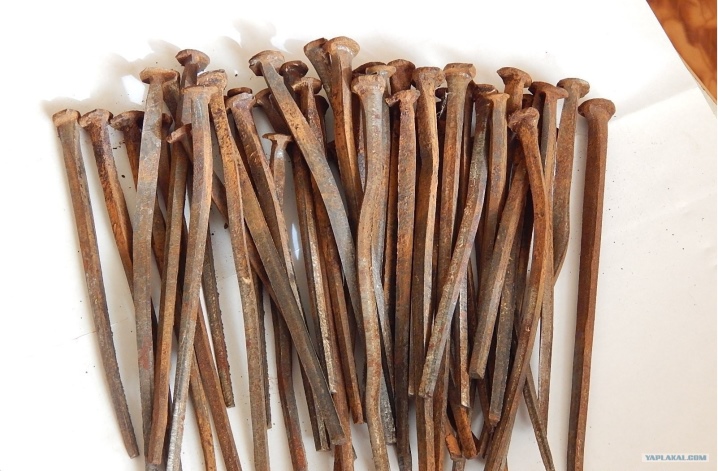
Construction nails may or may not have a wide, narrow, flat head.
Also, this type of product is divided into the following types, according to the material of manufacture.
- Stainless.
- Galvanized.
- Brass.
- Plastic.
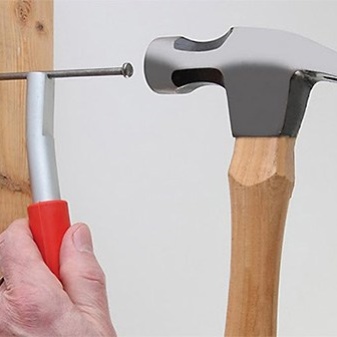
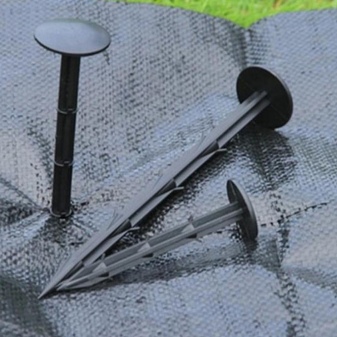
Dimensions and weight
Construction nails, like many other hardware, can vary in size and weight, which allows the consumer to buy the most suitable option for their job.
Flat Head Construction Nails Size Chart
Diameter, mm | Length, mm |
0,8 | 8; 12 |
1 | 16 |
1,2 | 16; 20; 25 |
1,6 | 25; 40; 50 |
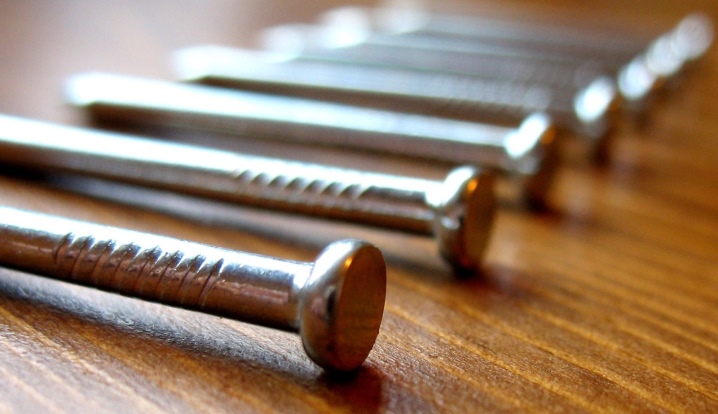
Tapered head construction nail table
Diameter, mm | Length, mm |
1,8 | 32; 40; 50; 60 |
2 | 40; 50 |
2,5 | 50; 60 |
3 | 70; 80 |
3,5 | 90 |
4 | 100; 120 |
5 | 120; 150 |
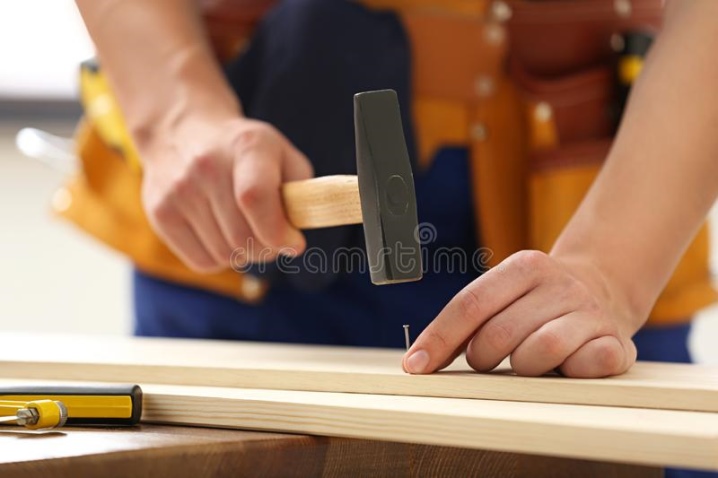
Theoretical weight table for construction nails
Size, mm | Weight 1000 pcs., Kg |
0.8x8 | 0,032 |
1x16 | 0,1 |
1.4x25 | 0,302 |
2x40 | 0,949 |
2.5x60 | 2,23 |
3x70 | 3,77 |
4x100 | 9,5 |
4x120 | 11,5 |
5x150 | 21,9 |
6x150 | 32,4 |
8x250 | 96,2 |
Thanks to the use of a table and markings on the products, the master will be able to accurately determine the type and number of nails for a specific task.
According to information from dealers, consumers often buy nails 6 x 120 mm, as well as with a length of 100 mm.
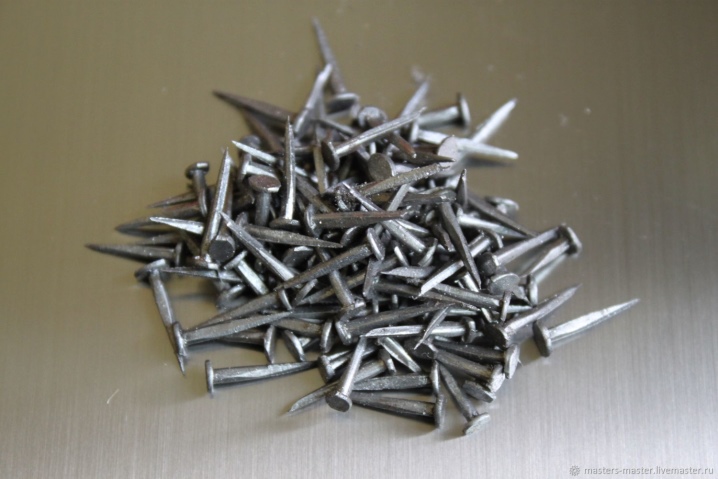
Usage Tips
The use of nails usually does not cause any difficulty for craftsmen. To make this procedure as easy as possible, it is worth remembering some rules.
- Do not hold the hardware with your fingers for the entire period while it is immersed in the surface. It is worth releasing the product after it has entered the material by about 2 millimeters from tapping.
- If the nail is bent during hammering, it should be straightened with pliers.
- For ease of dismantling construction hardware, it is enough to use a nail puller.
- When working with pliers, it is worthwhile to carry out rotational movements.
- So that the wooden surface is not damaged due to the impact of the nail puller, experts recommend placing a wooden block under the tool.
- In order for the fastening of the materials to be of high quality, the nail must sink into the lower element by about 2/3 of its size.
- For high-quality installation of the hinged structure, the hardware must be driven in, slightly tilting the head away from you.
- It is recommended to hammer small carnations with a doboiner, as this procedure may cause some inconvenience.
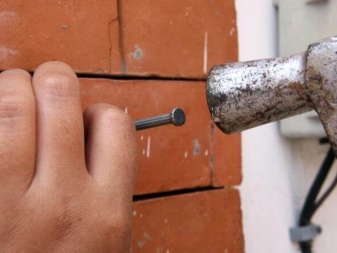

Working with nails can be dangerous as there is always a risk of injury.
For this reason, craftsmen should work with a hammer very carefully, this not only eliminates unpleasant moments, but can also guarantee a high-quality result.
For construction nails, see the video.













The comment was sent successfully.